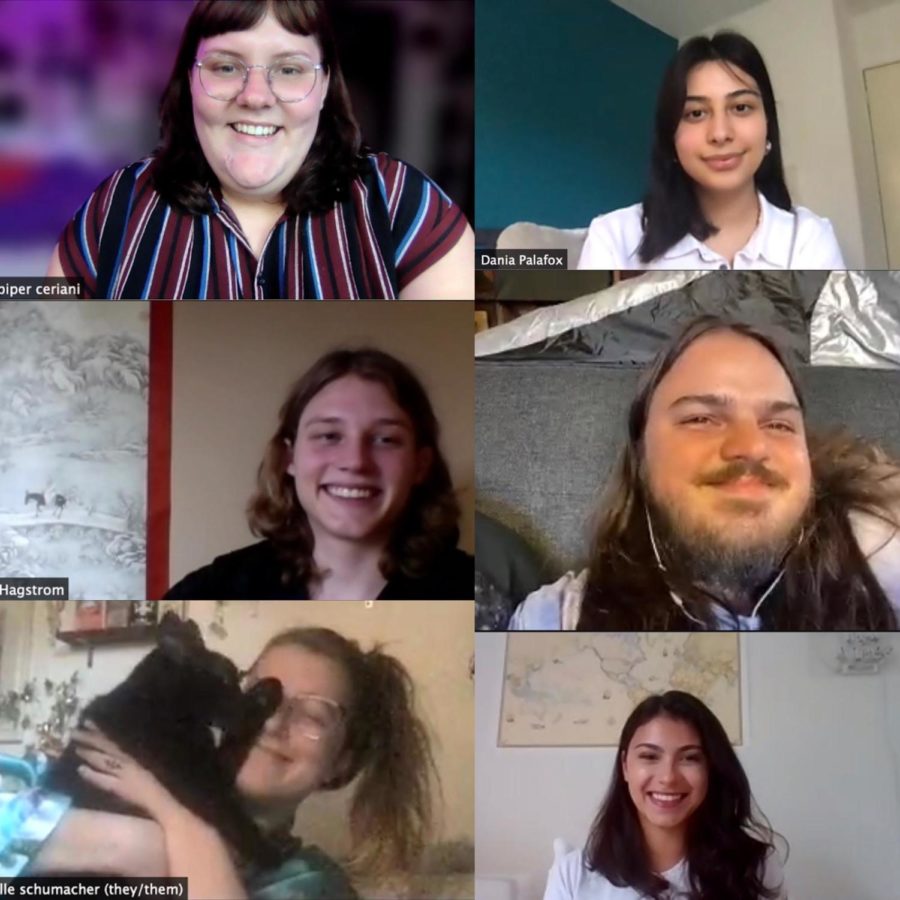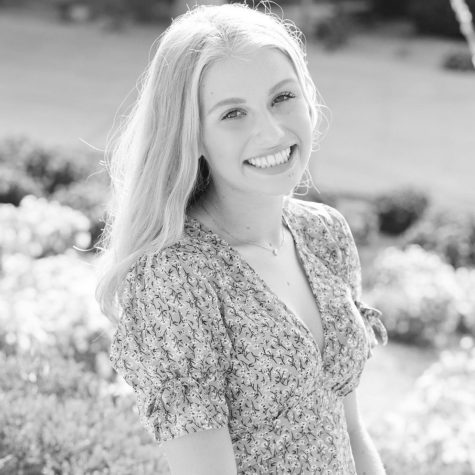A trio of students at San Diego Mesa College is pushing to develop a Green Revolving Fund in the hopes of furthering awareness on campus and within the community about the pressures of climate change and its effects on the next generation. Erik Hagstrom, Joelle Schumacher, and Pieper Ceriani are the co-founders of the fund and have been working on this project since last spring. Following the creation of the fund, they are looking for support from faculty, students, and the San Diego community to make green initiatives a higher priority within the district and at the college.
The Green Revolving Fund, or GRF, as Hagstrom describes it, is a circular way for those to invest money into projects surrounding sustainability that will, in turn, pay for themselves down the road. “Once you start with a little bit of money,” explained Hagstrom, “you can invest that into a sustainability project that saves some sort of money somewhere. Whether it’s energy savings, water savings, or resource savings in general.”
So far, the Green Revolving Fund has raised 1,000 dollars from Associated Students, and they plan to rely on The Mesa Foundation as their acting fiscal agent. In the works is an acting donation page, which will be asking for tax-deductible donations. The group is also looking to create a virtual fundraiser with the classified senate fundraising committee on campus, alongside applying for grants.
The verbiage ‘revolving’ is crucial to understanding the intention behind the movement of funding the projects. While the students could have created a ‘Green Fund,’ Hagstrom explained the importance of the addition of revolving; “You can take a portion of those savings and pay back the initial cost that it took to do that project and put in a little bit extra so that the next project that gets funded can be even bigger.”
While getting students on board hasn’t been the most challenging aspect, getting the faculty’s support and awareness has been difficult. “We’re at a little bit of a roadblock right now,” Schumacher explained, noting that they have run into issues with the creation of their donation page. “We were adamant that we needed to include an aspect about the revolving nature of the fund, in the language on the [donation] page,” they continued, however, faculty aren’t so sure. The proposed issue with the language lies within the distribution or “recycling” of tax dollars, yet, Schumacher stated, “We are not using tax dollars for any of our projects. So it really is a non-issue from as far as we are concerned.”
Although the trio recognizes that staff and faculty have been incredibly supportive to them, Schumacher voiced, “I think some of the administrators are a little tired of us, showing up places, and you know, telling them they have a responsibility to the earth, the students, and the local community.” Schumaker recognizes a generational divide surrounding the fear and urgency the younger generation has about the climate crisis.
“The most important thing faculty can do is understand there is a generational divide,” Schumacher says. “A lot of them have already lived a good portion of their lives. They have finished their schooling, they have families, homes, they have gotten to travel. And while I don’t think that they aren’t concerned about the climate crisis, I don’t think they realize how terrifying it is for younger people.”
Going forward, the group would like further understanding from faculty about this fear students have. Schumacher said, “We [students] need to be listened to more. We are the ones whose lives are going to be blown way off course.”
In a budget crisis like the one the district is facing now, it is common that the priority is slim, which would leave very little for greener initiatives. Hagstrom notes that this is why the fund is so important, especially now. “When the budget drops close to zero, and when everything unnecessary has to be cut, we can ensure that a focus on sustainability can continue to be kept.”
The group all met at Mesa’s TerraMesa Environmental Sustainability and Conservation Club last spring. Hagstrom had heard of revolving funds on other college campuses and began drafting the idea. The trio then decided to run for Associated Students (A.S), to get the ball rolling, and were elected as senators.
They worked to develop a Green Caucus for A.S., that focused on infrastructure changes campuswide including implementing sustainable energy, eliminating single-use plastics, and composting hubs, to name a few. Schumacher explained that although they were met with positive reinforcement from faculty and staff for the caucus, the age-old question arrived: Who was going to pay for it?
Due to the district’s budgetary crisis (that has been exacerbated greatly by COVID-19), there wasn’t a clear answer on how the caucus would fund these projects. Thus, leading to the birth of the Green Revolving Fund.
Getting other students involved with the club has been crucial, as the trio will not be attending Mesa after this spring, and plans on transferring to their respective universities this fall. This spring, the group presented the project to the TerraMesa club and found they had, “a bunch of students who are interested and willing to carry the torch for us,” said Ceriani.
“We hope that this green revolving fund, in particular, can be a vehicle for student action,” says Hagstrom, who notes the importance of student involvement, “we want the green revolving fund to take in applications from students for sustainability projects, and rank and review those projects.” Hagstrom voices the ‘fundamental idea’ of the project being geared towards providing students the tools for these projects, where they can “gain a whole plethora of skills that they would not be able to gain outside of the classroom.”
Ceriani mentioned the fear she and the group had of building this project, just to leave it when they transferred. “So that’s really why we’re doing this,” Ceriani added, clarifying that the goal of the fund is to provide that same sense of peace to students at Mesa. “We are the generation that will be dealing with the end of the world.”
Waverly Ray, a Geography professor at Mesa College, and the advisor for the TerraMesa environmental club on campus is a strong supporter of the fund and its future at Mesa. “The student-led Green Revolving Fund provides a mechanism to make smart choices that will benefit the College today and into the future.” She says that the fund is a “practical solution” that has been implemented within campuses across the country.
“We all need to contend with the realities of the climate crisis” Ray continued, stating that the Green Revolving Fund is a “proven way” that Mesa College can “meet campus environmental sustainability goals and work toward climate justice.”


